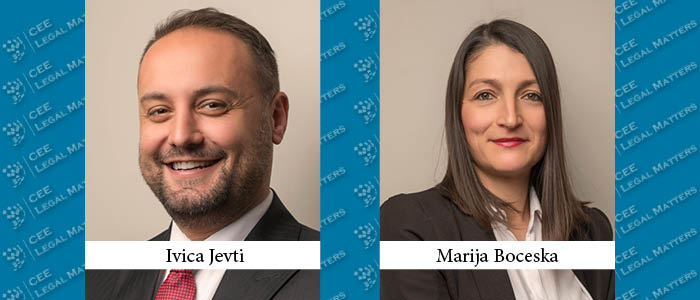The Macedonian real estate market reached its greatest growth and development in the last ten years. As a result of the increased investments in the real estate market, the legislation that regulates the respective matter is constantly changing to meet the amended conditions resulting from the growth, so we can see simplified procedures for obtaining building permits and simplified procedures for the transfer of ownership rights.
The legal conditions set for the sale of real estate are some of the safest in Europe and guarantee safe transactions for both parties. The safety of that procedure secured almost no fraud or illegal sales in the last ten years, which of course represents a great incentive for all investors. The sales tax rate, which varies from 2% to 4%, and the yearly property tax, which varies from 0.1% to 0.2% of the property value, make North Macedonia a country with one of the lowest property tax rates – in combination with the profit tax of 10% making the country attractive for foreign investments in the real estate market.
North Macedonia allows and gives foreign citizens the right to acquire property and property rights over construction land. Law no.18/01 on property and related rights makes a distinction between categories of foreigners in inter vivo legal acts. The law provides that foreign citizens that are residents of any member country of the EU and OECD can obtain property rights in the same conditions as domestic citizens. For residents of other countries, obtaining property rights is dependent on the rule of reciprocity.
Also, in the past several years, as a result of the increased interest coming from foreign and domestic investors in the construction industry, the increased need for construction workers is felt in North Macedonia the same way as in the rest of Europe. Consequently, the Macedonian government presented and adopted a new law on foreigners, Law no. 97/18, which enables investors to bring qualified workers from abroad and obtain their work permits in very short periods. The average time for obtaining work and stay permits for foreign workers is 45 days, which makes this process one of the fastest and least bureaucratic in all of Europe.
According to one of the country’s leading real estate companies, FortonMKA, and their CEO, Katerina Nikolov, although there has been a certain rise in the construction of quality business space in the last ten years in our capital, Skopje, the next development phase in commercial real estate would be the “business city” – several larger buildings exclusively intended for business activities in office space. That business city may be located a little further from the strict city center, following a pattern we can see in other capitals in Central Europe, which implies adequate transport infrastructure as well as the implementation of international construction standards for A-class business centers.
A quality working space built in accordance with the highest standards, with all the comforts it provides for employees, is becoming an increasingly important factor in attracting new employees, a process that has been a serious challenge for Macedonian employers lately. There is a small number of business centers in Skopje that meet the international criteria and definitions for “class A,” while the Macedonian classification for class-A business centers represents a system of criteria adapted in accordance with the local market. This is the reason why there is a huge space for development on several levels: technical, content, price, project size, innovation, and the creation of signature projects.
Finally, industrial and logistics real estate in North Macedonia is also shifting from owner-occupier to being lease driven after the pandemic. The access to finance with increasing interest rates is resulting in shifting from CapEx to OpEx for current and future occupiers. Despite the decreasing price uncertainty, the rental rates for class A industrial & logistics stock remain high compared to other classes, due to the limited supply and requirements applied according to international standards. The future supply of modern industrial & logistics stock depends on the innovative approach of local authorities to provide adequate traffic connectivity, as well as utilities and social infrastructure, as prerequisites for industrial & logistics developments.
By Ivica Jevtic, Managing Partner, and Marija Boceska, Attorney, Tosic & Jevtic
This article was originally published in Issue 10.3 of the CEE Legal Matters Magazine. If you would like to receive a hard copy of the magazine, you can subscribe here.













